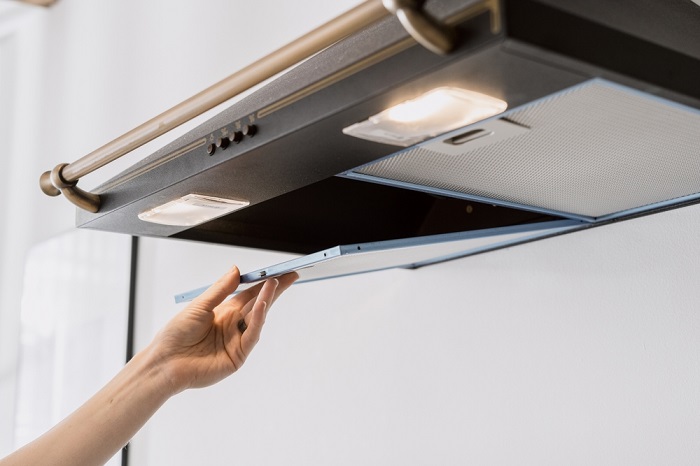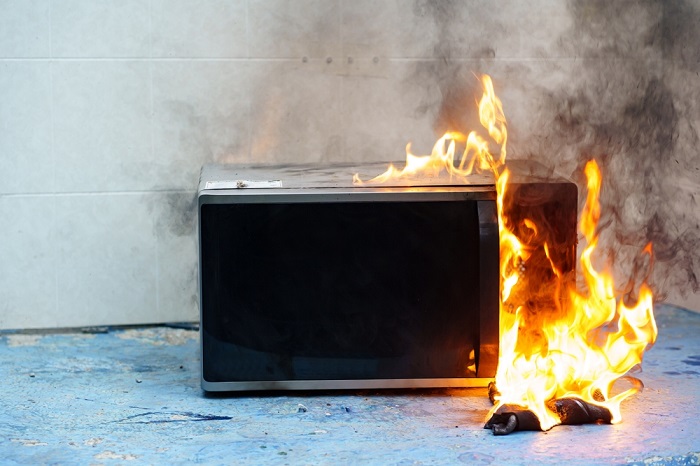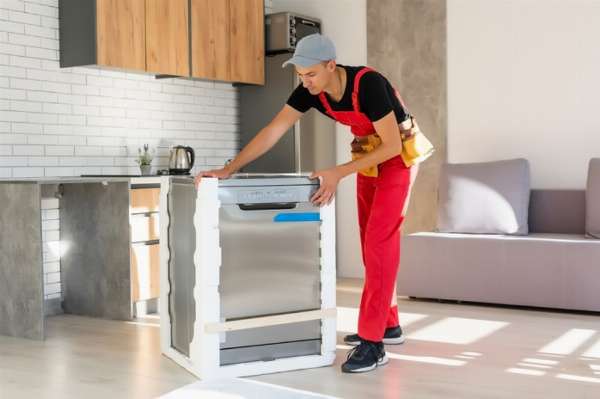As a homeowner, you’ve more than likely come to terms with the fact that replacing large appliances will be in your future. Eventually you’ll need to update your washer and dryer, replace your refrigerator, or swap out your HVAC system. Homeownership has its perks, but installing large appliances can come with some headaches. Luckily for you, we’re covering everything you need to know about the installation process. Should you do everything yourself, or should you consult the experts? It’s all here for you to leverage as a resource.
How Long Do Large Appliances Last?
First things first: Which large appliances should you keep an eye on, and when? Here’s a list with some best practices on when to replace each item:
- HVAC system: Every 10 to 20 years
- Kitchen appliance updates: Every seven to 13 years, depending on the item
- Hot water heater: Every eight to 12 years
- Garage door opener: Every 15 years
- Water softener system: Every 15 to 20 years
- Washer and dryer: Every 10 to 13 years
Just because you have this reference sheet doesn’t mean you can blindly purchase each item and check it off your list for over a decade. Large appliances take research, care, and routine checks and monitoring. These timeframes aren’t steadfast rules, but it’s crucial to leverage expert advice and the warranties and original product instructions that come with each item. That way, you’re proactive as opposed to reacting when something is leaking, breaking, or, worst case, causing serious damage to your home or other surrounding appliances.
Top 7 Things to Consider When Purchasing Appliances
You may have already purchased some of these items, but let’s start with the basics. Here’s what you should know about purchasing large home appliances and the proper steps to take before you even think about handing over your credit card.
- Research brands and find a reputable source to compare products and items.
- Understand features to figure out which appliances make the most sense for your home and family.
- Read online reviews.
- Figure out your budget.
- Make sure the appliance fits your home’s style and design, and visit a retailer to envision the items staged in a room setting as opposed to just the product picture.
- Measure the area and the appliance (more than once!).
- Find an expert who specializes in each appliance or at least each room, such as the kitchen vs. the bathroom.
Some other things to consider before purchasing are whether you should replace or repair your existing appliances, whether the new appliances add value to your home, and whether you should be proactive or reactive. All these answers will depend on your personal situation.
We can provide thoughtful advice, but it’s in your best interest to take a step back, speak with a few local experts and contractors, and discuss your options with your family before making any decisions. You should also recognize whether you plan to stay in your home for a while or you may move in the near future. The answer to this question could impact your decisions during the purchasing and installation process.
To Install or Not to Install, That Is the Question

The next logical step to consider is whether you’ll install the large appliances yourself or hire an expert to do the work for you. The decision can come into play for various reasons, including budget, installation difficulty, concerns with replacing the old appliance or disposing of it, setting up the new items, and ensuring the proper safety measures are taken before you begin using the new appliance.
Typically, one contractor doesn’t fit all. Some experts specialize in electricity or plumbing, while others specialize in kitchens or bathrooms. It’s important to have several conversations to understand each contractor’s area of expertise before making an educated and practical decision.
Contractors also have the proper tools, equipment, and moving devices to ensure the process is done correctly and efficiently. Just like moving and setting up utilities, homeowners should make the decision that works best for them. The decision isn’t as simple as a painting or a home decor item. Appliances truly have repercussions and should be thoroughly researched.
The experts are just that, but it’s not a bad idea to read the instructions yourself to understand what they’re doing and to make sure no one makes any mistakes. It’s important to take your time when selecting and installing appliances. They’re expensive and they’ll be used weekly if not daily, so taking extra time to understand the installation process will be in your best interest.
Better Safe Than Sorry

Safety is key in the installation process. Poorly installed appliances can cause serious problems, including leaking, flooding, water damage, fires, short-circuiting, and electric sparks, just to name a few. Even if an expert is in charge of the installation, it’s important to double- and triple-check that everything is functional from the onset. It’s even more crucial to set up routine checks on each appliance to avoid any future issues or concerns.
Large appliances may require delivery from the store or warehouse to your home, so can the delivery professional simply set up the items when they drop them off? They may be more knowledgeable about the product than the average homeowner, but it’s still smart to have an expert around, or, at minimum, to have another professional check their work. Contractors and handymen will also be more efficient, and they won’t be rushing to their next delivery.
The Selection Process
Choosing the right professional also requires proper focus. Just because you spent time picking out the appliance doesn’t mean all the hard work is over. Selecting the best expert for your appliance, home, and needs is also incredibly important. Word of mouth is the best review, but it’s also a good idea to check online reviews or ask the professional for references or neighbors in your area they have worked with. If they’re skilled and professional, they’ll respect your thorough selection process and won’t be greedy about earning your business.
You’re on Your Own
If you’re confident you can install an appliance on your own, we have some best practices to keep in mind for the process. For starters, double- and triple-check the measurements before you begin. There’s nothing worse than unhooking an old appliance and then realizing you can’t use the new one and have to reinstall the old one. Take the time to make sure you’re set up for success.
Each item comes with instructions, whether digital or physical. Websites have reviews and follow-along videos for a reason. Before you start installing an appliance, it’s a good idea to familiarize yourself with the overall process, read about best practices, and understand if there are any commonly made mistakes you can avoid. Chances are, other homeowners have been in your shoes and they’re the best insight for what not to do.
What’s Next?

The installation is complete, and you can start recycling all the boxes and packing materials dispersed across your floors. But before you kick back and relax, it’s important to make note of the installation date in an easy-to-find area or set a reminder in your phone for when you should have a routine check on each appliance.
You can also make note of a tentative replacement date, even if it’s over a decade away. Each of your appliances (assuming they’re new) should come with warranties and return policies. It’s best to keep any receipts and warranties until you’re 100 percent confident the item is fully functional and your warranty has expired. Rainy days happen, and you never know what to expect with new appliances in your home.
Once you’re secure and prepared, it’s time to kick back, relax, and enjoy the hum, buzz, or cycle of your newly installed appliance! Congrats, homeowner, you did it!


